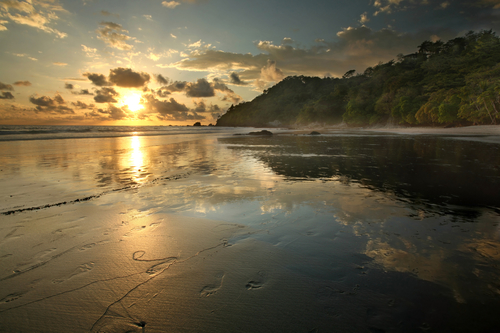Buying a property or land in any country, even the land where you were born, can be confusing. When it comes to living abroad, things can get even more complicated. In many countries, expats and migrants face a lot of difficulties when trying to make such purchases.Costa Rica has long been a popular destination for expatriates, with its stunning landscape, friendly local people, and tropical climate. But what if you want the security and investment of owning your own land or house? Well, in this article, we’re looking at whether expats can buy land in Costa Rica, hopefully clarifying the process for you.
Buying Property In Costa Rica As A Migrant
Unlike many other countries, Costa Rica gives migrants the same entitlements as citizens. Some expats may assume that buying land is a loophole for getting through the red tape that often surrounds buying properties abroad. However, this isn’t necessary in Costa Rica. You can buy a property in the country outright, either in your own name or that of your company, with only a few exceptions. Generally, the process of buying in Costa Rica is straightforward and transparent. However, we do recommend that you work with a reputable and knowledgeable real estate company or lawyer, to ensure that you have done everything correctly and above board.
Many migrants choose to form a corporation and purchase their property under that name, as this often works out better financially in terms of tax, particularly if the property will be rented out at any time. It also makes the process of reselling much simpler and can help homeowners avoid paying property transfer taxes twice.
Property Purchasing Exceptions
One of the exceptions to the above is that of beachfront concession properties, where special rules apply. About 95 percent of beachfront properties in Costa Rica are governed by the Maritime Zone Law, and may be subject to various other regulations. Essentially, the first 200 meters measured horizontally from the high tide line falls within the boundaries of the Maritime Zone. This zone is further divided into a public area and a restricted area. The public area cannot be developed, with the exception of government approved buildings, which cannot be purchased.
Therefore, migrants cannot own 100 percent of beachfront concession properties. When looking at purchasing a share of a beachfront concession property in Costa Rica, you will need additional permits, and if you want to purchase the majority ownership of a concession property, you will usually need to have been residing in Costa Rica for at least five years. If you have been living in Costa Rica for less than five years, you may still be able to purchase a share of the property, but not the majority share.
Another exception is that of IDA/INDER lands and properties. These are unused plots of land and properties in Costa Rica that have been donated by the government to poor farmers and cannot be legally purchased by migrants under any circumstances. In some cases, the land is obtained legally by squatters rather than donated to applicants of the government scheme.
Buying Land In Costa Rica As A Migrant
Expats can also buy land in Costa Rica, although this process may be a little more complicated than simply buying existing property. This entirely depends on what your intention is for the land that you are purchasing. For example, if you are buying land with the sole intent of building on it, you will have to apply for a construction permit. However, the application for the construction permit must be presented by a licensed engineer or architect, so it may be best to consult with a licensed professional prior to purchasing the land. It’s also a good idea to have the land surveyed. You will need to check with various local authorities to see whether any future construction plans may cause issues, such as plans for new roads.
Have you lived in Costa Rica? Share your thoughts in the comments below, or answer the questions here to be featured in an interview!

